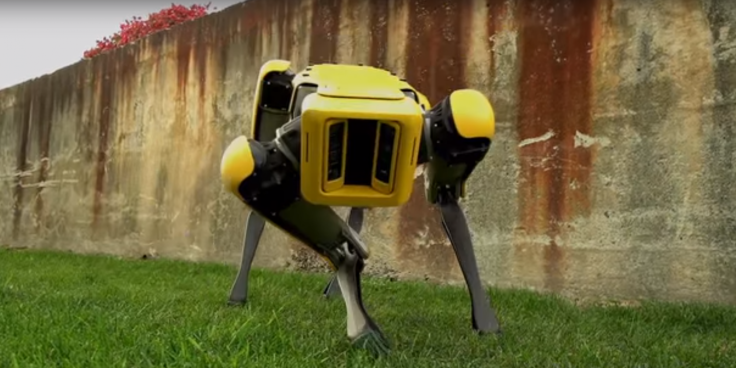Eight human jobs that will be done by AI and robots in the future
By Rohit Talwar, Steve Wells, Alexandra Whittington, Maria Romero, and April Koury, from Fast Future Publishing

There is no doubt that over the next decade many human job roles will be transformed or eliminated by the use AI and robotics. But where will the greatest changes take place? And which roles will be most affected?
Here are eight jobs that we believe face radical transformation:
1. Entrepreneurs / Leaders - Instead of looking for human partners and employees, entrepreneurs might increasingly scout for the combination of AI systems that would match his/her personality profile and range of business needs better. One-person businesses could be more common as artificial general intelligence materializes – enabling the growth of fully automated Decentralised Autonomous Organisations (DAOs) which have literally no employees.
2. Investment analysts, fund managers and traders - investment bots will have the capacity to analyse ever larger volumes of current and historic trading data, news, company updates, and market sector information in a fraction of a second to make investment decisions.
3. Accountants - AI would enable real-time analysis of every transaction as it happens – thus reducing the potential for error and fraud and enabling a continuously updated set of accountants without human intervention. The ability to track and analyse every commercial and social interaction would create new opportunities for suitably skilled and reputable accountants who can leverage their trustworthiness and experience to become high-level business and financial advisors. The emphasis would be more on improving business results rather than collating and auditing them. In this role, the keys to a successful career would include understanding the evolving dynamics of a mixed business environment comprising machines and humans, the ability to spot and interpret complex emerging patterns, communication skills, and creativity.
4. Drivers / Mechanics - from taxis to buses, trucks and rescue services - humans seem likely to be eased out gradually from these roles as regulations allow autonomous / driverless vehicles onto the roads. These new "autonomous people moving units" can be designed around their primary purpose: moving people around on business, on leisure, and on holiday. They hold out the promise of being inherently safer, more fuel efficient and productive - freeing up drivers' time. They could also become self-diagnosing and connect with other vehicles to form self-insurance pools. The use of shape shifting 4D-printing techniques could also result in self-repairing vehicles.
5. Marketing researchers and strategists - The data shared by consumers would be automatically analysed by AI in real time. This feedback loop would create dynamic marketing campaigns able to optimize themselves based on each response. Offers would be tailored to the individual according to both the preference and the time of day when they are most likely to make a purchase.
6. Managers – a vast swathe of management roles could disappear as the workforce they supervise, and the majority of their own tasks gets automated. Reports, meetings, performance appraisals, and team briefings become a thing of history when you have no staff and no work to do. For those that still have roles, the priority will shift from managing the present to creating the future, designing how work gets done with an in-depth appreciation of the limitations and advantages of AI and human workers alike. However, the pursuit of maximum efficiency would not be enough in a constantly changing world; to solve new challenge and realise new potential opportunities will require uniquely human capabilities for some time to come and truly unleashing human potential would become the new source of competitive advantage.
7. Research and development - from pharmaceuticals to new materials and electronic devices - AI software is increasingly being used to conduct more and more of the R&D value chain. The use of AI helps compress the iterative innovation process of trial-and-error experimentation. This involves doing more trials faster and comparing real-time data with historic and predictive consumer profiles to better target the solutions. Tailoring products and services using AI might lead organically to the creation of new and better offerings.
8. HR managers - Employee diversity might take on a new dimension when many business environments include a mix of AI, physical robots, holograms, "standard issue" humans and those with artificial augmentations of their brains and bodies. Different types of AI would have different jobs to fulfil alongside and - increasingly – in supervision of humans. Recognizing and nurturing the value of humanity in the workplace, helping people retain their worth and dignity and resolving human-machine disputes could become priority tasks for HR managers to address.
Ultimately, today's business leaders acknowledge that the robots are coming; it is just that we don't know where they may have their biggest impacts. To stay ahead of the game, we need to engage in mental exercises to construct possible scenarios – these can provide insights that challenge the 'expected' future and open doors to exciting new images of progress.
ABOUT THE AUTHORS
Rohit Talwar, Steve Wells, Alexandra Whittington, Maria Romero, and April Koury are from Fast Future which publishes books from future thinkers around the world exploring how developments such as AI, robotics and disruptive thinking could impact individuals, society and business and create new trillion-dollar sectors. Two new books from Fast Future are: 'Beyond Genuine Stupidity - Ensuring AI Serves Humanity', published on 27<sup>th Nov, and 'Future Transformations', available in Dec.





















